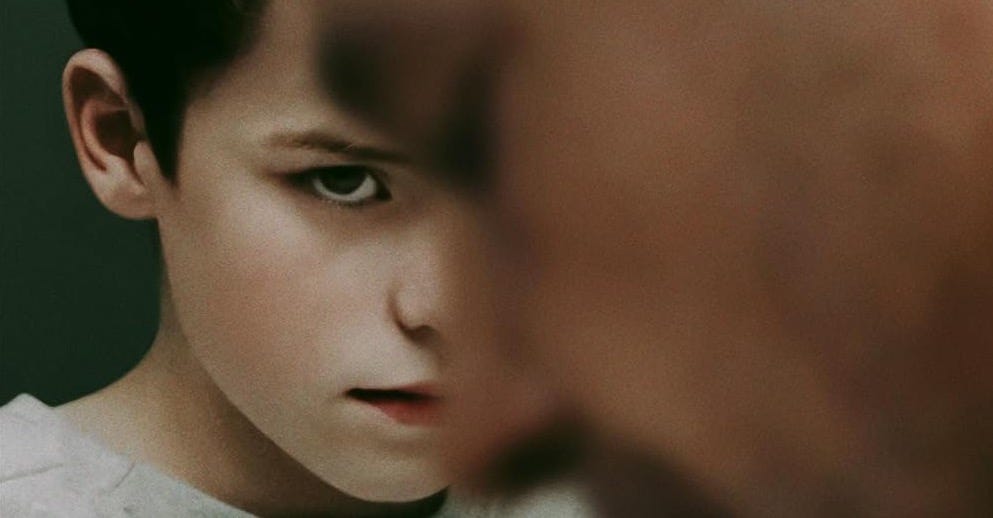'Only Connect': Adolescence and the Crisis of Male Rage
Netflix’s Adolescence is not a whodunnit. Far removed from Channel 5 and ITV 9pm specials which take a warped delight in grisly and often incomprehensible murders, Adolescence eschews the traditional format entirely. Co-created and written by Stephen Graham (A Thousand Blows, This is England) and Jack Thorne (Harry Potter and the Cursed Child), Adolescence tells the story of Jamie Miller, played by Owen Cooper, a thirteen-year-old boy who is charged with the murder of a female classmate. The show is not interested whether he is the culprit, his guilt is decisively confirmed, but how? How could a child be conditioned to the extent that he takes a kitchen knife and, after following his classmate one night, stabs her to death in a local carpark? Adolescence does not seek to point the finger of blame. Instead, Graham and Thorne examine through four-hour episodes the terrifying reality of growing up in contemporary Britain. Namely, what happens when the epidemics of knife crime and misogyny collide.
Shot with a single camera, each episode breathes like a single contained play. Speaking to the preparation process, Thorne explains there was a week rehearsal pre-episode and then it would be shot. No second takes, no redoes. Ultimately, what you see is what you get. The intensity created by the filming is clear. Indeed, it is refreshing that the singular demands of a series’ content are mirrored by its method of filming. Cinematographer Matthew Lewis’ medium elevates Adolescence all the more so into a triumph of television making just as it is a triumph of television. The closing shot in episode two is a masterclass; as school children pour out of the gates at the end of the day, phones in hand, a handheld camera tracks their movement until it launches into the air. Now clipped onto a drone, the camera flies up and over until it focuses in on the murder site. Filmed from an almost bird’s-eye view, and accompanied by the vocals of the children who played the students we saw seconds previously, the effect is staggering.
Similarly, Adolescence’s casting is at once entirely unconventional and perfectly conceived. As Eddie Miller, Stephen Graham and as Detective Inspector Luke Bascome, Ashley Walters the pair have historically become synonymous with playing very particular form of masculinity. For example, Graham’s back catalogue counts among many others, Guy Ritchie’s Snatch and Shaun Meadows’ hilarious and yet violently-charged This is England. So too is Ashley Walters’ work, perhaps best known for his breakout role in Top Boy; Summerhouse drug dealer Deshaune. As such, the choice to cast both actors- previously known for incredibly hard-edged, often violent characters- in father roles which demand a simultaneous softness and intense vulnerability is as brilliant subversion of expectation. As a result, an audience is no longer in conventional territory. Their full attention is demanded and though a harrowing and deeply unsettling experience, Adolescence prompts a feeling that to look away would make one complicit in a strange and incongruous way.
The portrayals of men in the series in particular offers a terrifyingly dark take on the idea of ‘only connect’. The idea that we are, whether we like it or not, interlinked with one another in terms of our actions, our words, even in what we may attempt to present to an artificial world. DI Bascome’s son Adam is reticent with his father because he has learnt it from him. Jamie conceals his shame and self-loathing because Eddie hides his when his son misses a goal in football. These are perhaps overly-simplified examples. Clearly, it is naïve to draw a direct line between such incidents and of violence towards women and girls. Nevertheless, these examples stand to show how learnt behaviours, mixed with a toxic blend of vocabulary from the manosphere and incel culture, is consumed by young boys with barely any limitations. It is the combination of generational ‘ways of being’ with the dark underbelly of social media and Andrew Tate-led misogyny that create the set of conditions where events depicted in Adolescence take place on a daily basis. In the time between Adolescence’s release on Netflix (13th March) and today, it is estimated that eight women will have been killed by men in the United Kingdom.
Ultimately, Adolescence offers a clear-sighted, complex and utterly astonishing examination into the epidemic of male rage and its effects upon their families, their communities and the individuals themselves. It is a remarkable piece of television which demands attention with a plethora stellar performances. I would dearly love to see the series receive critical attention and plaudits as it rightly deserves and as I am certain it will. But what I, as well as what I feel its writers may prefer, is for this series to force legislative and social change. What is the series most terrifying message? That Jamie Miller and Adolescence is not a fiction, it is a reality.



Go Bea - this is great !!